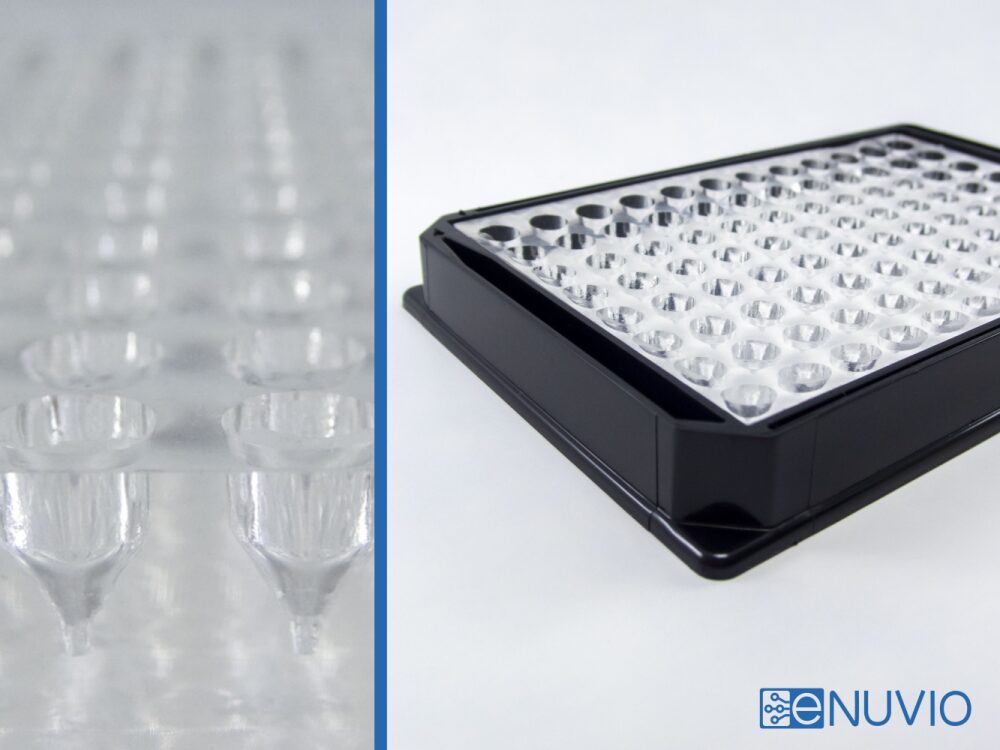December 8, 2020
EB-Plate, is the first completely reusable 3D cell culture microplate on the market. Scientific research currently consumes high-volumes of single-use plastics – from serological pipettes and pipette tips to vials and culture microplates – these are just a few of the many plastic items thrown in the garbage in labs every day.
eNUVIO’s completely reusable EB-Plate comes to the market at the right time as the demand for 3D cell culture microplates is high, conventional plastic plates are currently in short supply, and the zero-waste movement is becoming increasingly popular in laboratories. As with many emerging environmentally friendly options, it’s no surprise that the reusable and virtually indestructible EB-Plate comes in at a higher cost compared to its plastic counterparts. According to the company, the new plates pay for themselves after approximately 5-8 uses, and can be reused many times more.
3D cell cultures are quickly emerging as the next generation tools of choice for safety pharmacology and drug screening purposes. As such, conventional single-use plastic 3D cell culture microplates are increasingly being used in CROs, biotech and pharmaceutical companies as well as for fundamental research in academic and government laboratories. eNUVIO opens the door to researchers around the world to access the first, completely reusable and environmentally-friendly 3D cell culture microplate on the market. The company is banking on labs embracing greener choices in their workflows, and is working to expand their environmentally-friendly product offerings.
EB-PLATE Specifications:
- 96 microwells/plate
- Microplate outer dimensions: 127.7 x 85.4 mm
- Chamber material: Polydimethylsiloxane (PDMS), biologically inert, non-degradable
- Microplate height (w/o lid): 14.2 mm
- Microwell opening diameter: 6 mm
- Microwell diameter at base: 900 µm
- Microplate bottom thickness: 1 mm
- Chamber volume: 250 µl
- Chamber pitch: 9 mm
- Shipped sterile, ultra-low attachment (ULA) surface
- In-house production ensures high quality at all times
- Sold directly through enuvio.com or via scienceexchange.com
“The first step in a new direction is always hard to take, and the EB-Plate finally gives research labs the ability to make a green choice when it comes to embryoid and spheroid generation. There are basically no other green options on the market”, says Mark Aurousseau, CSO and co-founder of eNUVIO, Montreal, Canada.
He continues: “I’ve spoken to many scientists that sometimes just want to use a couple of wells of a plate for an experiment since reagents for this type of research can be quite expensive. They find themselves feeling horrible when they have no option but to throw out a half unused plate.”
